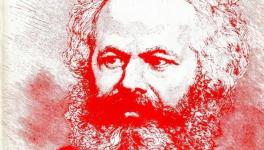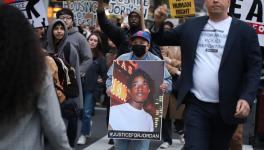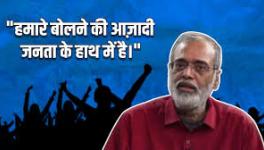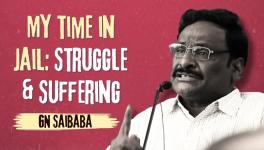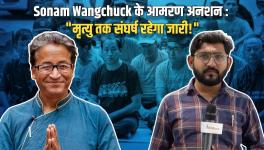Does Economic Inequality Matter?
Representational use only.
The COVID-19 disease is now in the community transmission phase in the country. Initially, India was one of the countries that imposed strict nationwide lockdowns to fight the spread of the pandemic. After the lockdowns, region-wise restrictions on economic activities were imposed, depending on the extent of the outbreak in the states. During the first sudden nationwide lockdown, India’s upper-middle and wealthy class saw the reverse migration of workers and witnessed their survival concerns. That was a tragic experience.
Today, the world over, this reverse migration and the economic crisis have rekindled debates over inequality among economists, sociologists, political scientists, philosophers, and citizens in general. Their concerns have grown as in various countries a K-shaped economic recovery graph is being recorded since and after the pandemic. What it means is that the gap between the rich and poor is widening in India and other countries. Former Reserve Bank of India Governor Raghuram Rajan had also expressed his worry about the K-shaped economic recovery in India after the brutal pandemic. He had recommended this concern be addressed in the Union Budget as well.
According to the United Nations, around 71% of the world population lives in places where income inequality has increased over the pandemic period. The latest Oxfam report, ‘Inequality Kills’, reports that in 2021, the number of billionaires rose to 142 from 102. On the other hand, 84% of households witnessed a fall in their income. Worse, between March 2020 and November 2021, the wealth of billionaires increased by 128%, from Rs. 23.14 trillion to Rs. 53.16 trillion while 4.6 crore Indians fell into extreme poverty.
The same Oxfam report mentions that the income of 84% of households fell in 2021. As per the ‘World Inequality Report 2022’, India is one of the most unequal nations in the world. The ICE360 Survey 2021 conducted by the People’s Research on India’s Consumer Economy (PRICE), a Mumbai-based think-tank, the income of the richest 20% of India has increased by 39% from 2015-16 to 2020-21. Over the same period, a fall of 52.6% was observed in the income of the poorest 20%. Only the upper middle class and richest have witnessed an income rise. All this is thanks to the neo-liberal policies adopted by the government.
In economic literature, there is a well-established connection between economic inequality and growth. In simple language, income inequality means the concentration of income favours the rich. So, the higher the inequality, the more concentrated the income. According to a number of economists, unbalanced growth would help the economy grow faster in the early development phase. However, in the end, whether policy-made inequality will ever disappear is the burning question.
The Indian government plans to achieve a $5 trillion economy in the coming years. However, how this income would get distributed is a more critical issue. Moreover, would this five-trillion economy make the necessities available to the vulnerable sections? Do we have adequate scientific evidence to claim that only economic growth reduces poverty, starvation and malnourishment? Have we asked whether the market can solve these problems on its own? Do we need state intervention in resolving the issues of inequality? If yes, how can public policies be framed and checked to do so?
No matter which ideology policymakers believe or practice, economic inequality has always been a concern. However, we must accept that the state has to intervene with appropriate policy actions to resolve uneven income distribution. The state also needs to prioritise which resources should be used. We cannot expect the poor to pay the price of economic development all the time and in different ways. For example, the development projects are not providing enough benefits to them. On the contrary, the poor will be worse off in the end. As the Oxfam report also finds, a 1% tax on the wealth of the top 98 billionaires can fund the total annual expenditure of the Department of School Education and Literacy under the Ministry of Education.
I want to raise some more questions: Can we consider inequality a form of violence or injustice? As conventional economic theories suggest, people are poor due lack of skills, but what about the concentration of resources in favour of the capitalists? A higher concentration of resources helps them grow faster at the cost of other sections of society, which leads to even higher economic inequality.
Are income and wealth inequality natural or manufactured by public policies? The poor are not getting adequate resources to use their capacities and meet their potential. If the market has failed to do this task, it is the state’s job to do it. Conversely, both the state and the market are diverting the available resources towards the rich and making them unavailable or unaffordable for the poor. Asking the initial question again, is it not violence in the form of economic exploitation?
Can we consider state and market both as coercers in this context? To address the issue of economic inequality, we need to focus on the local level policies, decentralised economic systems, more autonomy to local authorities in terms of income and expenditure. To finance the COVID-19 vaccine booster shots in India, the Confederation of Indian Industry has suggested the government impose an additional 1% corporate social responsibility levy for an year. Here, the role of thinkers like Gandhi and Marx comes into the picture. Karl Marx coined the term, ‘reserve army of labour,’ associated with unemployment and workers’ lower bargaining power in society. We need production by the masses and not mass production by the big giants to resolve inequality from its roots.
During the last two years (March 2020 to January 2022), no significant policies have been made to favour the country’s poor. The Atmanirbhar Bharat Package was insufficient to help the needy, as it constituted only 2-3% of the total GDP. The hungry need food today; otherwise, they would not live to see tomorrow’s development.
The author is professor at the Department of Economics, St. Xavier’s College (Autonomous), Ahmedabad. The views are personal.
Get the latest reports & analysis with people's perspective on Protests, movements & deep analytical videos, discussions of the current affairs in your Telegram app. Subscribe to NewsClick's Telegram channel & get Real-Time updates on stories, as they get published on our website.









